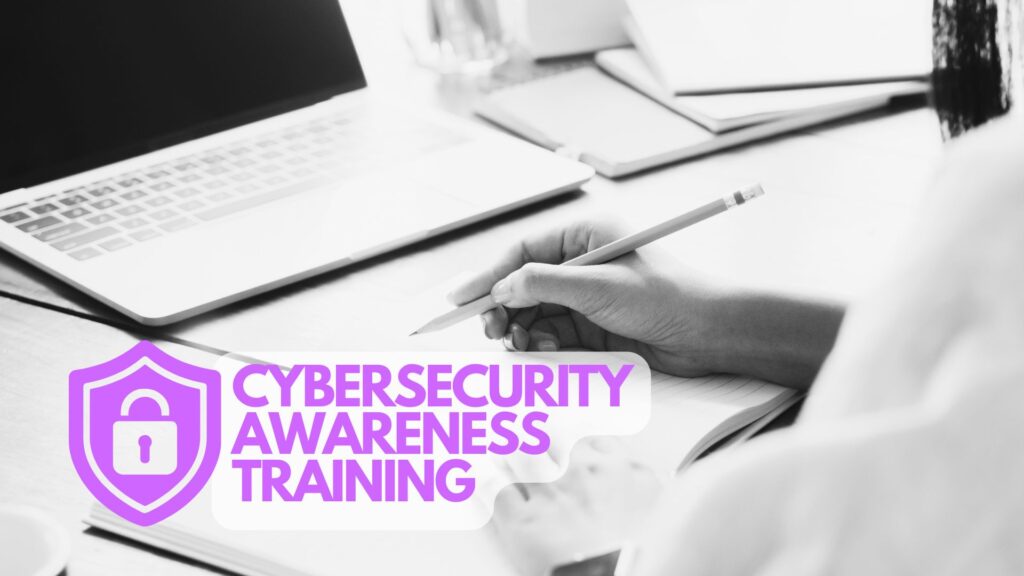October is International Cybersecurity (or cyber security) Awareness Month! The aim of this initiative is to educate and empower everyone about cybersecurity and staying safe online.
You’re probably wondering why both cyber security and cybersecurity have been used so far. Surely there’s only one correct way to spell the word. Right? Well, your awareness training begins now: cybersecurity is more often used as the American spelling, while cyber security is more commonly used as the British spelling. Both spellings have the same definition, therefore either spelling is acceptable, and the selected spelling is a preference.
What is cyber security awareness month?
October is known as cybersecurity awareness month and is dedicated to creating awareness around cybersecurity related topics for everyone, both individuals and organizations. The awareness month was started in 2004 by the United States and has expanded globally. Each year, a specific topic is selected, and all awareness content will be based on that topic.
What is cybersecurity awareness training?
Cybersecurity awareness training focuses on educating people on the basic cyber threats and best practices to keep themselves safe online. The training covers several topics including identifying phishing emails, password management, social engineering awareness, and safe browsing tips, to name a few.
Why is cybersecurity awareness training important?
The threat landscape
Cyber threats are evolving at such a fast pace due to the constant technology enhancements. Most data breaches are linked to human error such as clicking malicious links, not updating your software, and so forth. Hackers rely on our lack of cybersecurity knowledge to exploit vulnerabilities. Awareness training equips people with the knowledge they need to identify threats and how to prevent them.
Protecting yourself
Awareness training provides insight on how to protect your information, both personal and professional data. This ranges from protecting your social media accounts to protecting your devices containing personal information.
Protecting your finances
A single phishing or ransomware attack can have devastating financial implications. Awareness training provides the steps you can take to help prevent these cyberattacks and protect your finances.
Compliance requirements
There are many industries, especially finance, healthcare, and government sectors, which are legally required to provide awareness training to their employees. The reason is that these industries contain copious amounts of sensitive information that needs to be protected and are often prime targets for cyberattacks.
The benefits of awareness training
Cyber security awareness training will and does benefit all of us. Let’s look at three of those benefits that everyone can relate to:
- It reduces the risk of cyberattacks. When you understand what you need to look out for, you are less likely to fall victim to cyberattacks.
- Building a security-first culture. As the culture of security awareness grows within organizations and communities, cybersecurity becomes a shared responsibility. People will help and encourage each other to be secure online.
- Increased customer trust. When you, as the customer, know that a company takes cybersecurity seriously as part of protecting your data, you are more comfortable doing business with them.
Key training topics
There are so many topics for awareness training but let’s look at the key topics that cover the most common scenarios that everyone needs to understand:
1. Phishing
Phishing remains one of the most common methods hackers use to gain access to your information. Understanding how to recognize and prevent phishing attempts are important as part of awareness training.
2. Password management
Weak passwords remain a vulnerability. Awareness training will help you understand the importance of creating strong passwords and how you can effectively manage them for additional security.
3. Social engineering
People remain the weakest link in cybersecurity. Therefore, it is important for you to understand how cybercriminals can use manipulation techniques to trick you into providing sensitive information and how you can recognize these attempts.
4. Data protection
Training on data protection is important so that you are aware of how you can safely store information, and how to adhere to compliance requirements.
5. Remote work
Remote work has become more common over recent years. Awareness training will help remote workers understand how to protect their devices and network to prevent unauthorized access.
How to get started
The first step is to acknowledge that everyone is a potential target. Knowledge is your best defense so understanding the basic concepts around cybersecurity will increase your chances of preventing a cyberattack. You should consider using security tools for phishing and malware protection and stay informed on the latest cyber threats.
Cyber security training is not a once-off training course. It is a continuous effort to stay informed and practice the online safety tips. But it is worth the effort knowing that you and your data are secure.



